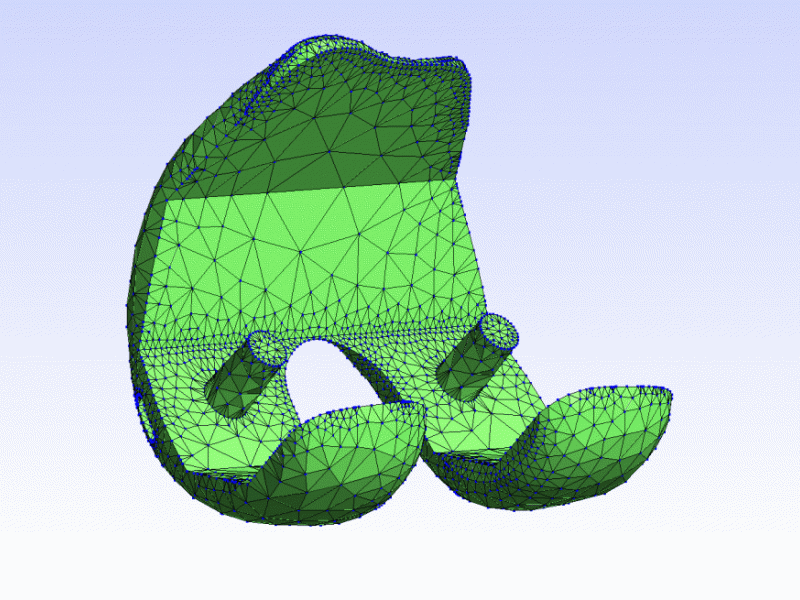For the market admittance of joint implants, a standardized wear test has to be performed. During the design phase, similar tests are necessary as well. Those tests are very cost and time expensive. The project aims at the development of simulation and optimization methods for substituting some of the design phase tests by simulations. Additionally, the design process shall be accelerated by shape optimization, and the offered implants be tailored to the patient population by taking different patient groups into account.
Focus of the work at ZIB is the long-time integration of wear trajectories. The implant geometry is modified due to wear, which in turn changes the wear rate. The evolution is determined by the wear of one load cycle, the simulation of which is computationally expensive. We develop adaptive methods for controlling tolerance, order, and time step for an efficient simulation of many load cycles.
